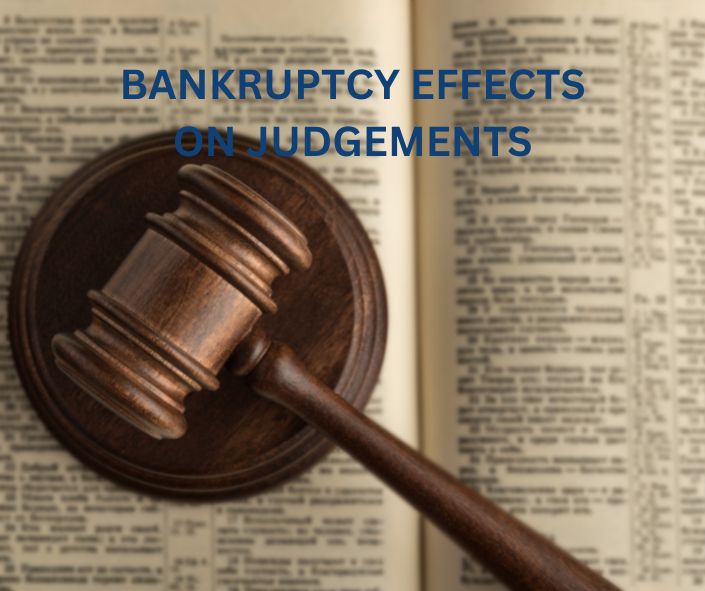Creditors are likely to file a lawsuit if you have missed your payments or failed to repay your loan. The court is likely to issue a judgment which is an order that indicates you owe money to your creditors. With this judgment, creditors can begin collection actions such as garnishing your wages, seizing your bank accounts, and placing liens on your property to pay down your debt.
Basically, a judgment gives creditors permission to collect anything you own until your debts are settled with them.
The judgment will also be added to your public record meaning that it can affect your credit report. To avoid this, you can file a response when creditors file a case against you. Failing to do so will lead to the creditor winning the case by default.
Bankruptcy After A Judgment
 A judgment can wreck your finances which is why you need a way to clear it up. Filing for bankruptcy is a great solution if you do it before a lien is placed on your property. Bankruptcy can discharge your debt but it cannot remove a lien.
A judgment can wreck your finances which is why you need a way to clear it up. Filing for bankruptcy is a great solution if you do it before a lien is placed on your property. Bankruptcy can discharge your debt but it cannot remove a lien.
After a creditor places a lien on your property, the only solution is for your lawyer to petition the court to remove some liens placed on your property. But this is not always successful. The best move is to respond to the judgment and argue your case before the court.
Nondischargeable Debt
Nondischargeable debt is debt that cannot be eliminated or erased when you file for bankruptcy. These include debts such as child support payments, taxes, spousal maintenance, alimony, and more. You need to file for bankruptcy before your creditors file a lawsuit against you.
Creditors can file an adversary proceeding to ask the bankruptcy court to make a dischargeable debt become non-dischargeable. Debts that can trigger an adversary proceeding include:
- Debts resulting from injuries caused by the malicious acts of the debtor
- Debts that result from a debtor getting money on services and goods through fraud
- Debts involving the debtor committing fraud while acting as a trustee or guardian
These are the only situations where a creditor is likely to successfully object to your discharge.
Lien Avoidance
You can get rid of a lien placed on important assets such as your house through lien avoidance, especially if you have not given creditors consent for the judgment. This option is necessary when there is a judgment against you.
Lien avoidance is possible with a Chapter 7 bankruptcy. Talk to your attorney to find out if you are eligible for Chapter 7 bankruptcy. Once you know that a creditor has placed a lien on your property you need to work quickly to claim your property as an exemption in the bankruptcy paperwork when filing your bankruptcy.
You can get rid of judgments most of the time but only if there is no fraud involved in your case. You can get rid of a judgment by filing for bankruptcy or filing a motion to have the judgment vacated.